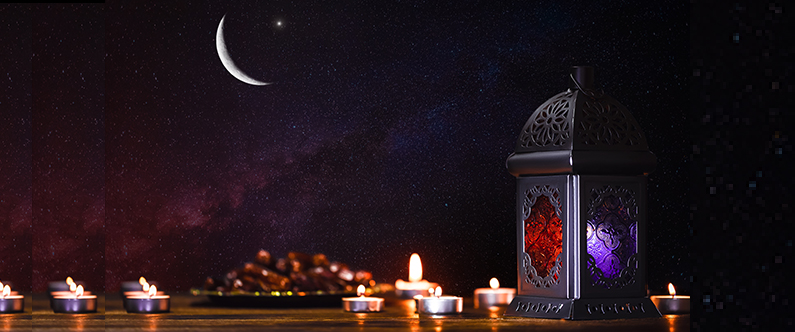Ramadan 2022: Fast Healthier!
 To maintain normal functioning of the body it is important to have healthy and balanced meals at Suhoor and Iftar
To maintain normal functioning of the body it is important to have healthy and balanced meals at Suhoor and Iftar
Fasting during the holy month of Ramadan is one of the five pillars of Islam. The act of fasting is meant to remind oneself of the less fortunate and reinforce the need to be thankful for what we have. This year, Muslims will fast on average 14 hours from sunrise to sunset. The meal taken before sunrise to begin the fast is called ‘Suhoor’, and the meal after sunset (that breaks the fast) is called ‘Iftar’.
Fasting and the human body
Eight hours after the last meal, the human body enters into a fasting state. The body uses up the glucose stored in the liver and the muscles. After 12 hours of fasting, when the glucose runs out, the body starts using up fat for energy. To maintain normal functioning of the body it is important to have healthy and balanced meals at Suhoor and Iftar.
Benefits of fasting
Fasting has numerous benefits:
- Dissolves and removes toxins stored in the body resulting in natural detoxification
- Boosts the immune system making the body resilient to stress and increases adaptability to change
- Helps to control blood sugar levels
- Decreases appetite in the long-run
- Supports weight loss
- Controls blood cholesterol levels by increasing the ‘good cholesterol’ (HDL) and decreasing ‘bad cholesterol’ (LDL)
- Regulates blood pressure

The best way to eat during Ramadan
Drinking and eating properly during Suhoor helps maintain hydration and energy levels until Iftar. Some foods like cakes, brownies, cookies, and juice cause a ‘sugar rush’, spiking the blood glucose levels for short periods of time. This results in an instant boost of energy, but also increases the craving for more sugar. Instead, one should opt for meals that are rich in fibre and protein. These provide ample energy for the day, do not spike sugar levels, reduce hunger, and promote fullness throughout the day. An example is eggs with vegetables (chakchouka) which contains protein, fibre, vitamins, and other essential nutrients. Oatmeal is another option of a fibre and protein-rich meal. Legumes such as beans, chickpeas, and lentils can also be included in the Suhoor meal.
The traditional way of beginning Iftar is by eating three dates along with a glass of water or milk. Dates are an excellent source of simple sugars, fibre, and essential minerals. Avoid fizzy drinks and caffeine to prevent unnecessary consumption of empty non-nutritious calories. Fried foods, such as ‘pakora’ and ‘samosa’, can be easy to cook but contain a high percentage of sodium and carbohydrates along with saturated fat. Eating fried foods daily may amplify the impact of fatigue that can be caused by fasting in Ramadan. Foods such as avocado, nuts (e.g., walnuts, almond, pistachio), and fatty fish (e.g., tuna, sardines, and salmon), which contain a good amount of healthy fat can be eaten instead.
As recommended by the Cleveland Clinic, drinking plenty of water (at least 10 glasses) between Iftar and Suhoor is very important to replace fluid lost during the day. Additionally, high-water content fruits and vegetables such as watermelon, cucumber and tomato, should also be consumed.

Tips for physical activity during fasting
Slow or moderate exercise is advised for fasting healthy individuals. A brisk walk, slow jogging, cross-training, cycling, and resistance training are some exercises that can be done during fasting. The ideal time for physical activity in Ramadan is between Iftar and Suhoor as optimal nutrition and hydration before and after exercise can be taken to maximise performance and minimise muscle damage.
Reflect, pray, share and care - all from a healthy distance
While keeping the spirit of Ramadan alive with near and dear ones, it is important to adhere to COVID-19 safety guidelines issued by the Ministry of Public Health - Qatar. Using social media to celebrate events like Garangao or holding an online photo competition with the best traditional dress are some safe ways to celebrate Ramadan with friends and family. Get healthier by embracing a healthy lifestyle during Ramadan. Ramadan Mubarak!
Sources: World Health Organization (WHO) | Ministry of Public Health - Qatar | National Center for Biotechnology Information (NCBI) | Cleveland Clinic | Al Jazeera | Gulf Times
Contributors: Mr. Dhruv Mittal, Dr. Sohaila Cheema, and Dr. Karima Chaabna
Editing: Mr. John Hayward